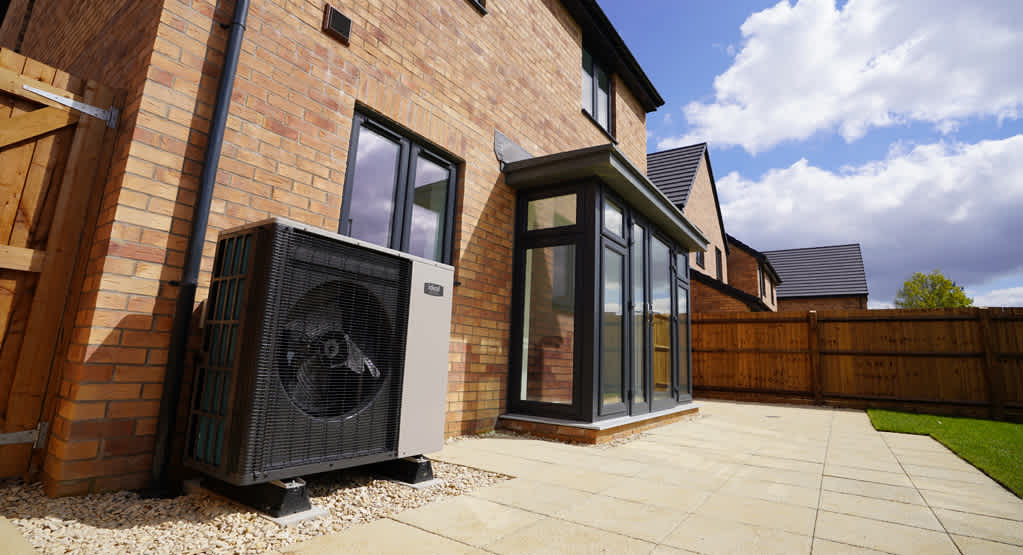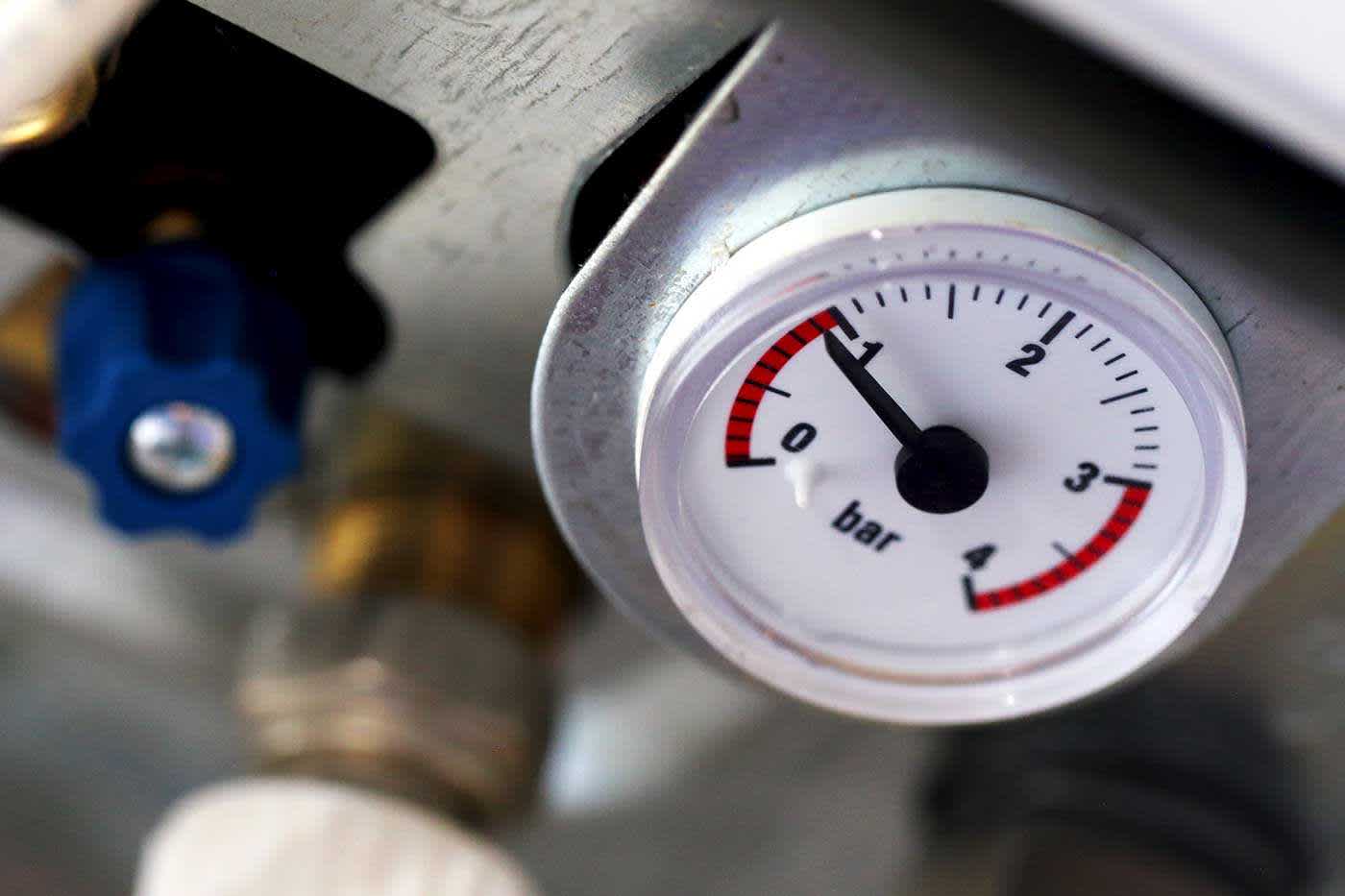
Heat pump vs gas boiler: Which is right for you?
If you’re looking for a new heating system for your home, you may be wondering whether a heat pump or gas boiler is the best option.
While gas boilers have been the most common heating option in UK homes for decades, the Government’s Net Zero Strategy, which aims to eliminate the country’s net carbon emissions by 2050, seeks to change this by gradually moving UK households away from gas boilers. As a result, environmentally friendly heat pumps are being touted as the answer to low-carbon household heating.
So, should you choose a heat pump over a traditional gas boiler? In this guide, our experts have compiled all the important information you need to make an informed decision. Our guide to heat pumps can also help you better understand this increasingly popular appliance.
How do heat pumps work differently from gas boilers?
Gas boilers generate warmth through burning gas to heat the water that flows through the central heating system. While this is effective, it is accomplished by burning fossil fuels, which results in carbon emissions that can damage the environment. Our gas boiler guide gives more in-depth coverage of how this works if you’re looking to learn more.
Heat pumps extract energy from the air using substances called refrigerants that have very low boiling points. As air passes through the heat pump, energy is transferred to the refrigerant, causing it to boil and become gas. It’s then compressed to increase the energy and temperature even more, and this energy is then transferred to the water that will flow around the heating system.
Heat pump vs gas boilers: Benefits and drawbacks
Heat pumps
The table below shows an at-a-glance look at how heat pumps fare in terms of cost, installation, efficiency, running costs and maintenance. Our sections below cover these in more detail, including further considerations and factors to bear in mind with each.
Upfront cost | Installation | Efficiency | Running costs | Maintenance |
£7,000 - £13,000 (Government grant available) | Comprises an outdoor unit, hot water cylinder and may require some heating system upgrades. | 300%+ | 24.5p per kWh - although these prices can be lowered with heat pump tariffs. | Annual servicing |
Gas boilers
Here is the same table on gas boilers for comparison. These numbers are affected by variable factors that we cover in the sections below.
Upfront cost | Installation | Efficiency | Running costs | Maintenance |
£1,000 - £4,000 | 4-6 hours+ | 90-94% | 6.04p per kWh | Annual Servicing by a Gas Safe engineer |
Heat pump vs gas boiler upfront costs
A significant factor when choosing between gas boilers and heat pumps is the upfront cost. The purchase and installation cost of heat pumps can be between £7,000 and £13,000, considerably more than the £1,000 to £4,000 average for gas boilers.
However, it is important to note that many UK homeowners installing a heat pump are eligible for a grant of up to £7,500, reducing the upfront cost of a heat pump significantly.
Heat pump vs gas boiler installation
As gas boilers are so common, there are plenty of Gas Safe installers who are qualified to fit them. Plus, this installation is fairly fast, often taking less than a day and sometimes as quickly as four hours.
See our guide on how long it takes to fit a boiler for a more accurate estimation of the time it will take to fit a boiler in your home.
On the other hand, fewer engineers are familiar with fitting heat pumps. That’s why we created our Logic Air heat pump, specially designed for boiler installers, with a compact monobloc system, low clearances and a single communication cable.
Heat pump vs gas boiler efficiency
Gas boilers are fairly efficient, usually offering around 90-94% efficiency - meaning the heat energy emitted is 90-94% of the energy used in gas. This is because a small amount of heat energy is lost through your boiler’s flue.
On the other hand, one of the most significant heat pump benefits is that they are 300-400% efficient, meaning the heat energy output is three to four times more than the electricity input. With Ideal heat pumps, this can often be even more, with the Logic Air capable of reaching 500% efficiency in lab-tested conditions. Although this efficiency may be slightly lower in practice, it remains impressively high.
Heat pump vs gas boiler running costs
The running cost of your heating system depends on its fuel price.
A heat pump is powered by electricity, whilst a gas boiler is, you guessed it, gas-powered.
According to MoneySuperMarket gas prices are currently capped at 6.04p per kWh for Direct Debit payment. In contrast, electricity is capped at 24.5p per kWh, making electricity over four times more expensive than gas.
However, this doesn’t mean that electrically powered heat pumps are more expensive to run than gas boilers. Many energy companies, such as Octopus Energy, offer heat pump tariffs that reduce the cost of electricity used to power your heat pump at certain times of the day.
Heat pump vs gas boiler maintenance costs
Both heat pumps and gas boilers require annual servicing to ensure they are running properly, including inspection of components and cleaning.
As boilers are so popular, all Gas Safe engineers will be confident in servicing them, while some may be unfamiliar with heat pump servicing. This will change rapidly, though, as heat pumps become more common. Our guide on what to expect from heat pump servicing can give you more advice here.
Which types of properties are heat pumps or boilers better suited to?
One of the biggest factors in determining whether a heat pump or gas boiler is right for you is knowing which is right for your property.
Heat pumps are most effective in homes with modern radiators or underfloor heating, whilst older radiators are often more compatible with gas boilers. This is because heat pumps are more effective at providing low levels of heat consistently rather than large, quick bursts like a boiler. Modern radiators and underfloor heating are both more effective at spreading lower levels of heat around the home.
Heat pumps are also best suited to homes with some outdoor space, as they have an outdoor unit as well as an indoor unit. This unit may require some garden space or just a large outdoor wall space with clearance from doors and windows, depending on how sizeable the outdoor unit is.
On top of this, there are certain rules from the Government regarding eligibility for a heat pump grant.
See our guide, ‘Should I Install a Heat Pump in My Home,’ for more guidance on which homes are suitable for heat pumps.
Are heat pumps quieter than gas boilers?
Air heat pumps and gas boilers emit a similar level of sound - around 40 - 60 decibels. However, if you’re worried about sound, our Logic Air heat pump is Quiet Mark certified.
The heat pump is also located outside the home, further limiting any potential disturbance to you.
Cold climates: heat pump or gas boiler?
An analysis by Oxford University and the Regulatory Assistance Project (RAP) found that heat pumps are more than twice as efficient as gas boilers in low-temperature environments. Heat pumps are incredibly popular in cold-climate countries such as Norway, with one heat pump for every 3.4 people as of April 2023.
Will heat pumps replace gas boilers?
Ultimately the UK Government has an ambition that heat pumps will become more prevalent and replace gas boilers. This will take time with newly built homes requiring low-carbon heating solutions from 2026 and more emphasis on existing homes into the 2030s. There is a target that by 2035 installing new or replacement gas boilers will stop but that is not yet confirmed in law.
The Government is also striving to rebalance electricity costs to make heat pumps even more accessible before this date.
Is a heat pump better than a gas boiler?
Both heat pumps and gas boilers have strong benefits, and choosing the right one for you can depend on numerous factors, from budget to the type of home you live in. At Ideal Heating, we offer both gas boilers and heat pumps so you can choose the heating system that’s right for you.
Over on our blog, you can learn more about both of these heating types to make the right decision; see our guide to gas boilers and our guide to heat pumps for further information on each.

















